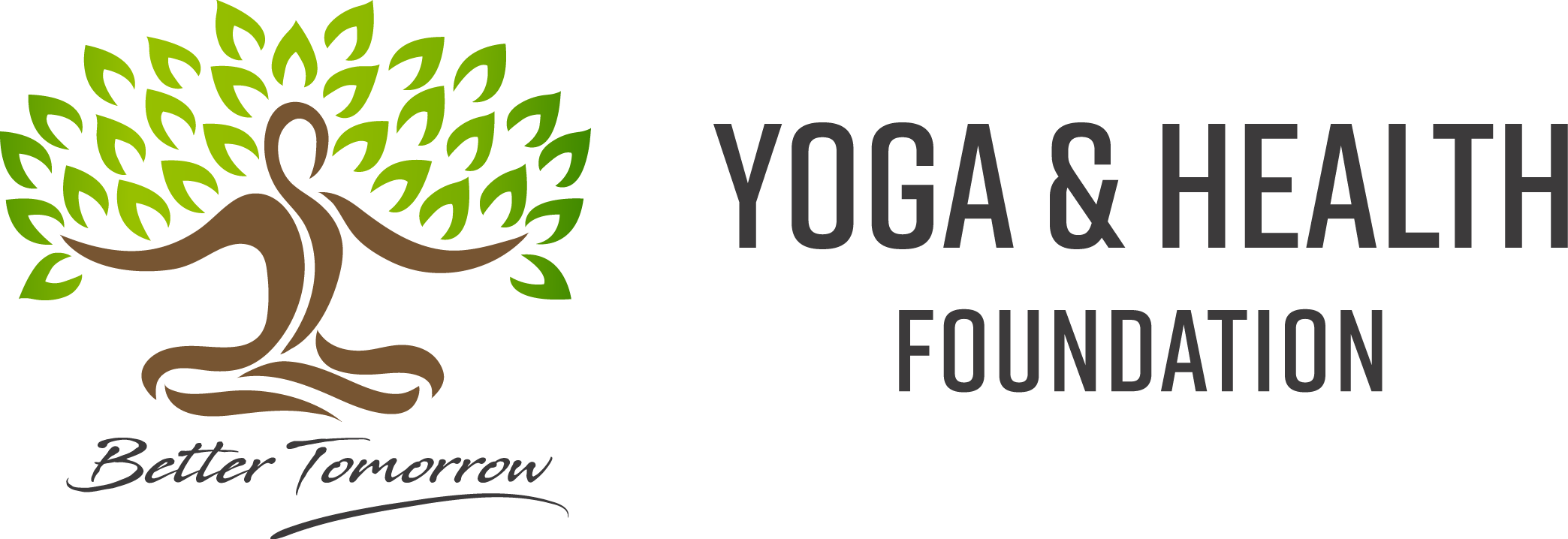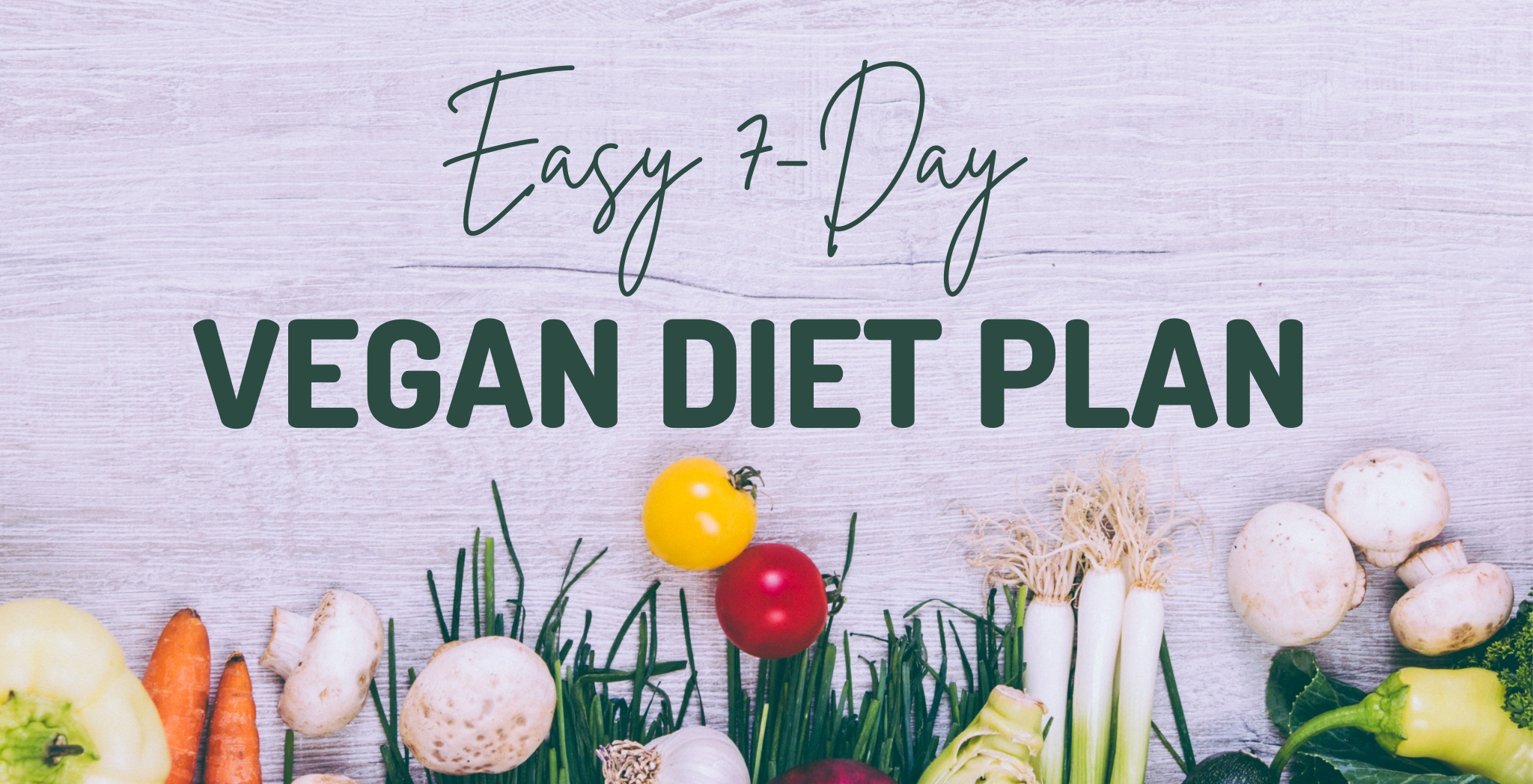Embarking on a vegan diet journey can be exciting and daunting, especially for beginners. A vegan diet means you don’t eat anything from animals., including meat, dairy, eggs, and honey. However, with the right knowledge and planning, adopting a vegan lifestyle can lead to improved health, reduced environmental impact, and a sense of ethical alignment with animal welfare.
This blog will provide a comprehensive 7-day vegan diet plan for beginners and essential tips to help you navigate this new dietary path successfully.
7-day vegan diet plan for beginners
Here’s a 7-day vegan meal plan for beginners. Remember that how much you eat might differ from others, so you should change the amounts as needed. And before you make big changes to what you eat, it’s a good idea to talk to a doctor or healthcare expert.
Day 1:
Breakfast:
- Overnight oats: Mix the flat oats with almond milk, chia seeds, sliced bananas, and a sprinkle of cinnamon. Let it sit in the fridge overnight.
Lunch:
- Chickpea and vegetable wrap: Whole wheat tortilla filled with mashed chickpeas, diced veggies (bell peppers, cucumber, and spinach), and a tahini dressing.
Dinner:
- Lentil soup: Hearty lentil soup with carrots, celery, onions, and spices. Serve with whole-grain bread.
Snack:
- Hummus with carrot and cucumber sticks.
Day 2:
Breakfast:
- Vegan yogurt parfait: Layer coconut yogurt with mixed berries, crunchy granola, and a little bit of maple syrup on top.
Lunch:
- Quinoa salad: Cooked quinoa mixed with chopped kale, diced tomatoes, red onion, black beans, and a lemon-tahini dressing.
Dinner:
- Stir-fried tofu and vegetables: Tofu cubes stir-fried with broccoli, bell peppers, and snap peas in a soy-ginger sauce. Serve over brown rice.
Snack:
- Handful of mixed nuts.
Day 3:
Breakfast:
- Smoothie: Blend spinach, frozen berries, banana, almond milk, and a scoop of plant-based protein powder.
Lunch:
- Avocado toast: Take a slice of brown bread topped with mashed avocado, sliced tomatoes, red pepper flakes, and a sprinkle of nutritional yeast.
Dinner:
- Vegan chili: Hearty chili made with kidney beans, black beans, tomatoes, corn, and spices. Serve with a side of cornbread.
Snack:
- Rice cakes with almond butter.
Day 4:
Breakfast:
- Chia pudding: Mix tiny chia seeds with coconut milk and leave it overnight. Top with sliced mango and shredded coconut.
Lunch:
- Mediterranean wrap: Whole wheat tortilla filled with hummus, roasted red peppers, Kalamata olives, cucumber, and mixed greens.
Dinner:
- Vegetable stir-fry: Sautéed mixed vegetables (broccoli, carrots, zucchini, snow peas) with a teriyaki sauce, served over quinoa.
Snack:
- Apple slices with peanut butter.
Day 5:
Breakfast:
- Vegan pancakes: Fluffy pancakes made with mashed bananas, almond milk, and whole wheat flour. Top with fresh berries.
Lunch:
- Spinach and strawberry salad: Baby spinach leaves topped with sliced strawberries, candied walnuts, red onion, and a balsamic vinaigrette.
Dinner:
- Stuffed bell peppers: Put cooked brown rice, black beans, corn, diced tomatoes, and taco seasoning inside bell peppers.
Snack:
- Trail mix (nuts, seeds, dried fruits).
Day 6:
Breakfast:
- Tofu scramble: Crumbled tofu cooked with diced bell peppers, onions, turmeric, and nutritional yeast. Serve with whole-grain toast.
Lunch:
- Vegan Caesar salad: Romaine lettuce, croutons, and dairy-free Caesar dressing (made with cashews and lemon).
Dinner:
- Eggplant and chickpea curry: Eggplant and chickpeas are cooked in a flavorful curry sauce, served with basmati rice.
Snack:
- Rice crackers with guacamole.
Day 7:
Breakfast:
- Açai bowl: Blend frozen açai with banana and almond milk. Top with granola, coconut flakes, and fresh fruit.
Lunch:
- Lentil and vegetable stir-fry: Cooked lentils and mixed vegetables sautéed with a soy-ginger sauce, served over whole wheat noodles.
Dinner:
- Vegan sushi rolls: Nori sheets filled with avocado, cucumber, carrot, and tofu. Serve with soy sauce and wasabi.
Snack:
- Sliced bell peppers with hummus.
Helpful Tips for Switching to a Vegan Diet
Here are some valuable tips to help you navigate the transition successfully:
- Educate Yourself: Before you start, take the time to learn about the nutritional aspects of a vegan diet. In plant-based foods, understand the sources of essential nutrients like protein, iron, calcium, vitamin B12, and omega-3 fatty acids.
- Start Gradually: For some, going vegan overnight might be challenging. Consider gradually reducing animal products and incorporating more plant-based foods into your meals. This approach can make the transition smoother and more sustainable.
- Plan Balanced Meals: Focus on creating balanced meals that include a variety of foods from different food groups. A well-rounded meal typically includes a source of protein (legumes, tofu, tempeh, and seitan), complex carbohydrates (whole grains), healthy fats (avocado, nuts, seeds), and plenty of colorful vegetables.
- Experiment with New Foods: Embrace the opportunity to try new plant-based foods. There is a wide array of fruits, vegetables, grains, nuts, and seeds to explore. Try out different ways of cooking and adding flavors to your food to make your meals interesting and fun.
- Batch Cooking: Prepare large batches of grains, beans, and veggies in advance. Having these staples ready makes it easier to assemble meals throughout the week, saving you time and effort.
- Find Vegan Alternatives: Nowadays, there are numerous vegan alternatives for dairy, meat, and even eggs available in stores. While these can be helpful during the transition, remember that whole foods like fruits, vegetables, and legumes should form the foundation of your diet.
- Read Labels: Be vigilant about reading ingredient labels, as some packaged foods may contain hidden animal-derived ingredients. Familiarize yourself with common non-vegan additives and preservatives.
- Get Creative with Cooking: Cooking at home gives you control over the ingredients in your meals. Explore new recipes and cooking techniques to keep your taste buds engaged. Look for vegan cookbooks, blogs, and YouTube channels for inspiration.
- Stay Hydrated: Drinking water is super important to keep your body healthy. Make sure to stay hydrated throughout the day. Herbal teas, infused water, and coconut water can add variety to your hydration routine.
- Include a Variety of Foods: Eating a diverse range of foods ensures you get a wide spectrum of nutrients. Prefer to eat lots of fruits, vegetables, whole grains, nuts, seeds, and beans in your meals to ensure you get all the healthy stuff your body needs.
- Monitor Protein Intake: Plant-based protein sources can be as effective as animal sources. To meet your protein needs, include beans, lentils, quinoa, tofu, tempeh, and seitan.
- Mind Your Iron and Calcium: Plant-based sources of iron include lentils, spinach, tofu, and fortified cereals. Pair these with vitamin C-rich foods (citrus fruits, bell peppers) to enhance iron absorption. Include fortified plant milk, leafy greens, and fortified juices for calcium.
- Be Kind to Yourself: Transitioning to a vegan diet is a journey. It’s okay to make mistakes or have occasional slip-ups. Approach the process with self-compassion and a willingness to learn.
Conclusion
Embarking on a vegan diet journey can be a transformative and rewarding experience. Following this 7-day vegan meal plan and incorporating the provided tips, you can kick-start your journey toward a healthier, more compassionate, and sustainable lifestyle. Remember, the key to success lies in preparation, exploration, and embracing the abundance of plant-based foods available.


